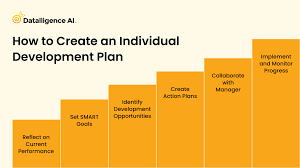“`html
The Importance of Development Planning
Development planning plays a crucial role in shaping the growth and progress of communities, regions, and nations. It involves the systematic process of setting goals, identifying resources, and outlining strategies to achieve sustainable development outcomes. Here are some key reasons why development planning is essential:
Strategic Direction
Development planning provides a roadmap for guiding decision-making and resource allocation. By setting clear objectives and priorities, planners can ensure that development efforts are focused on areas that will have the most significant impact.
Resource Management
Effective development planning helps optimize the use of available resources, whether financial, human, or natural. By aligning investments with identified needs and goals, planners can maximize the efficiency and effectiveness of development initiatives.
Stakeholder Engagement
Involving stakeholders in the planning process fosters collaboration and ensures that diverse perspectives are considered. Engaging community members, government agencies, businesses, and other partners can lead to more inclusive and sustainable development outcomes.
Risk Mitigation
Development planning allows for proactive identification and mitigation of risks that may impede progress. By conducting thorough assessments and incorporating risk management strategies into plans, communities can better withstand potential challenges and uncertainties.
Monitoring and Evaluation
Monitoring progress against established targets is a critical component of development planning. Regular evaluation helps assess the effectiveness of interventions, identify areas for improvement, and adapt strategies to changing circumstances.
In conclusion, development planning is an essential tool for fostering sustainable growth, promoting resilience, and achieving positive social change. By embracing a systematic approach to planning and implementation, communities can work towards a future that is prosperous, equitable, and environmentally sound.
“`
7 Essential Tips for Effective Development Planning
- Set clear and achievable goals.
- Create a detailed timeline for each task.
- Allocate resources effectively.
- Regularly review and adjust the plan as needed.
- Communicate the plan to all team members.
- Consider potential risks and have contingency plans in place.
- Celebrate milestones and successes along the way.
Set clear and achievable goals.
“`html
Setting clear and achievable goals is a fundamental tip in development planning. By defining specific objectives that are realistic and measurable, planners can provide a clear direction for their initiatives. Clear goals help focus efforts, motivate stakeholders, and track progress effectively. Ensuring that goals are attainable helps prevent frustration and maintains momentum towards successful outcomes. Ultimately, setting clear and achievable goals is key to driving purposeful and impactful development planning processes.
“`
Create a detailed timeline for each task.
“`html
Creating a detailed timeline for each task is a critical tip in development planning. By outlining specific deadlines and milestones for individual activities, planners can effectively track progress and ensure that the project stays on schedule. A well-structured timeline helps in prioritizing tasks, allocating resources efficiently, and identifying potential bottlenecks early on. This approach not only enhances accountability but also facilitates better coordination among team members, leading to smoother execution and successful completion of the overall development plan.
“`
Allocate resources effectively.
“`html
Allocating resources effectively is a key tip in development planning that can significantly impact the success of projects and initiatives. By carefully assessing needs, setting priorities, and matching resources to specific goals, planners can ensure that limited resources are utilized in the most efficient and impactful way possible. Effective resource allocation helps maximize the benefits of investments, optimize outcomes, and enhance the overall sustainability of development efforts.
“`
Regularly review and adjust the plan as needed.
“`html
Regularly reviewing and adjusting the development plan as needed is a critical aspect of effective planning. By conducting periodic evaluations, stakeholders can assess the progress made towards goals, identify challenges or opportunities that may have arisen, and make necessary adjustments to stay on track. This flexibility allows for responsiveness to changing circumstances and ensures that the plan remains relevant and aligned with the evolving needs of the community or project. Continuous monitoring and adaptation help to enhance the plan’s effectiveness and increase the likelihood of achieving desired outcomes in a dynamic environment.
“`
Communicate the plan to all team members.
“`html
Communication is key when it comes to development planning. It is essential to ensure that the plan is effectively communicated to all team members involved in its implementation. By sharing the details of the plan with everyone, team members can align their efforts, understand their roles and responsibilities, and work towards common goals. Open communication fosters collaboration, transparency, and a shared sense of purpose, ultimately leading to more coordinated and successful development outcomes.
“`
Consider potential risks and have contingency plans in place.
“`html
When engaging in development planning, it is crucial to consider potential risks and have contingency plans in place. Anticipating challenges and uncertainties allows planners to proactively address them, minimizing disruptions to the implementation process. By developing contingency plans, organizations can respond swiftly and effectively to unforeseen events, ensuring that development initiatives stay on track towards achieving their goals. Prioritizing risk management in planning efforts enhances resilience and prepares stakeholders to navigate obstacles with greater confidence and adaptability.
“`
Celebrate milestones and successes along the way.
“`html
Recognizing and celebrating milestones and successes along the way is a crucial aspect of development planning. By acknowledging achievements, big or small, teams are motivated, morale is boosted, and a sense of progress is reinforced. Celebrating milestones not only provides a moment to reflect on accomplishments but also serves as a reminder of the positive impact of the collective efforts. This practice fosters a culture of appreciation and encourages continued dedication towards reaching larger goals in the development process.
“`

